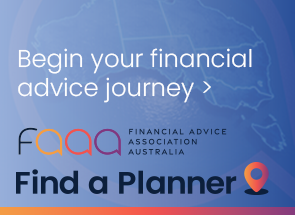Most people who see a financial adviser will tell you they wished they’d seen them sooner.
And when you ask a financial adviser when they recommend people see them, they will say “as early as possible”.
But even if you don’t see a financial adviser at a big moment like starting your first job it’s good to set up some good financial habits. The more good habits you set up with your finances the better you will be in the long term.
With the benefit of compound interest, saving a little today will result in exponential growth because you’ll be earning interest on interest on interest for as long as you remain invested.
And when it comes to super, what you contribute into super when you’re in your 20s works harder than what you contribute later. Just a little money from your early earnings when you potentially have fewer expenses and responsibilities will result in a very welcome sum as you near retirement.
Major life changes
As your life undergoes major change it’s a good idea to review your needs and see someone to help with the complexities.
When you enter serious relationships and maybe become de facto or married, it’s important to work out your financial affinity. If you are combining finances, it’s sensible to be working towards shared goals and setting a financial plan that you can both check regularly.
Your adviser might be able to help with strategies to help you both, and you might need to work on your legal positions – do you have a will, a power of attorney, power of enduring guardianship? Have you set your superannuation beneficiary? Keep in mind that if you do marry, your previous will becomes invalid, so you should update all your legal documentation.
Buying a house is a big decision. Before you buy, it’s good practice to see an adviser to work out how much you can really afford, how to best structure your loan, where to get your loan and how to manage your financial plan with your new mortgage. Look at your insurances and make provision in case an accident or illness thwarts your plans. It’s also a time to make sure you have a robust savings plan with emergency funds.
Having children
Bringing children into your life will change all your financial plans and decisions. This is a good time to see your adviser to revisit your goals, reset your financial plans, and check your cash flow, budgets, and insurance levels. If you or your partner die or become incapacitated, consider your plans to support your family. You might also like to set up a fund for private schooling, pay for university, or other child-related expense.
Breaking up
You should see your financial adviser as soon as you know your relationship is beyond saving. You will need time to plan a strategy to split assets and figure out what your goals and plan will be going forward. Establish what you can afford to rent or buy and potentially change your beneficiaries and powers of attorney.
Getting ready to retire
This is the reason most people seek financial advice. They might seek it from a financial adviser or from their super fund. People tend to get serious about their superannuation about 10 years out from retirement. This is usually the time where income is at a peak, and expenses have reduced so it’s a good time to build the super balance and work on a transition to retirement strategy. It’s also a good time to review insurance policies, investment strategies outside super, and set a general financial plan.
Losing your job
Redundancies are commonplace today and seeing a financial adviser can often help at this time to put things in perspective and adapt your plans accordingly. Most importantly they can help put your mind at ease by helping you set a new financial plan until this period of uncertainty ends.
Best practice
While these large life moments are triggers for financial advice, it’s valuable practice to have an annual or semiannual visit to your advisers to check you’re staying on track to achieve your financial goals.
The Money & Life website is operated by the Financial Advice Association (FAAA). The views expressed in this article are those of the author and not those of the FAAA. The FAAA does not endorse or otherwise assume responsibility for any financial product advice which may be contained in the article. Nor does it endorse or assume responsibility for the information accessible via any links provided in the article. Please consider seeking advice from a qualified professional to ascertain how the information in this article and the links provided may relate to you.








